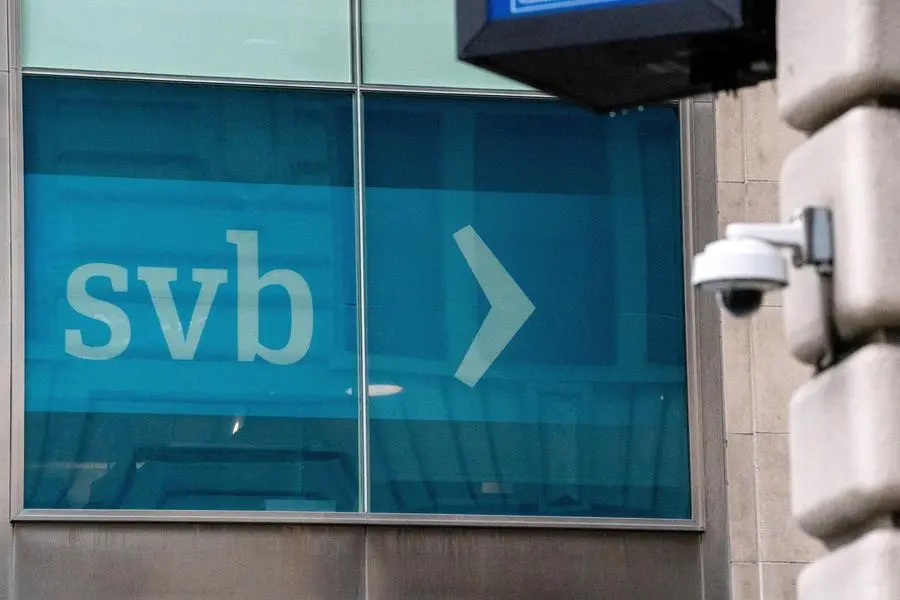PHOTO
The collapse of Silicon Valley Bank (SVB) last week due to problems that led directly from the aggressive interest rate hikes by the US Federal Reserve has led analysts to believe the Fed could ease its foot off the pedal in the short term. Indeed, Goldman Sachs and Barclays expect the Fed to not hike the rate at all when it meets next week.
SVB, which focused on lending to tech start-ups and venture capital firms, collapsed on Friday following a deposit run after its parent tried to raise funds to plug a nearly $2 billion hole on the sale of its securities portfolio at a substantial loss amid the higher rates.
Two days later regulators also closed down New York-based Signature Bank, the third largest failure in US banking history.
Earlier last week as the US economy reported solid job and wage growths for February, Fed Chair Jerome Powell had said the response could be a more than expected increase in rate, ratcheting up market expectations from 25bps to 50bps. However, in the aftermath of the developments at SVB, and the closure of Signature Bank, analysts are tempering their views.
Goldman Sachs said in a note to clients on Monday that it no longer expected the Fed to deliver a hike in its March 22 meeting “in light of recent stress in the banking system”.
“The interest rate hike of 50bps seems to be farfetched at this stage, especially given the fall of SVB stems on the back of increasing rates over the last year. The fight against inflation is important, however its cost on the economy and jobs cannot be ignored. The CPI number on Tuesday is expected to see a cool down to 6% YoY, and if it comes in as expected or even lower, this will help US Fed delay the hike," Srijan Katyal, Global Head of Strategy & Trading Services at Abu Dhabi-based financial services firm ADSS, told Zawya on Monday.
SVB’s failure could change the Fed's tightening stance, said Stephen Dover, Chief Market Strategist and Head of Franklin Templeton Institute.
"To the extent that the SVB problem is now under control, then barring an unexpected decline in inflation this week, the Fed may hike rates 50 bps at its March 21–22 policy meeting. But if the situation remains volatile and uncertain, then the Fed will be conflicted and may be forced to do less (25 bps) or even skip a hike at the upcoming meeting," he said in a note.
The economics research firm Capital Economics said problems at SVB could spread through the system as a fundamental loss of confidence triggers widespread deposit flight and a "collapse in counter-party confidence that causes interbank lending markets to freeze".
"Two things will matter in the coming days and weeks. The first is whether the actions of the authorities are successful in maintaining (or restoring) the confidence of depositors and investors in the US banking system. It’s still very early days, but the moves in pre-open trading look encouraging," Capital Economics said in a note on Monday.
The second is whether there are any other institutions with similar vulnerabilities to SVB or Signature Bank either in the US or in other economies, the firm said.
"Even if the authorities are successful at putting a firewall around the problems at SVB and Signature Bank, the lags with which policy operates are a reason to adopt a more gradual approach to policy tightening from here."
On Sunday the US Treasury Department, the Federal Reserve and the Federal Deposit Insurance Corporation (FDIC) moved to calm the nerves by announcing measures to boost confidence in the banking system, including a $25 billion funding backstop to help banks and other depository firms meet their liquidity needs.
“The efforts by the US Government may be enough at this stage and should assist other banks that could have been impacted by this contagion. The next 10 days are critical as we have a full range of economic data, most importantly the inflation data from the US Consumer Price Index, that shall determine the US Federal Reserve’s Fund Rates policy," said ADSS' Katyal.
(Reporting by Brinda Darasha; editing by Seban Scaria)





















